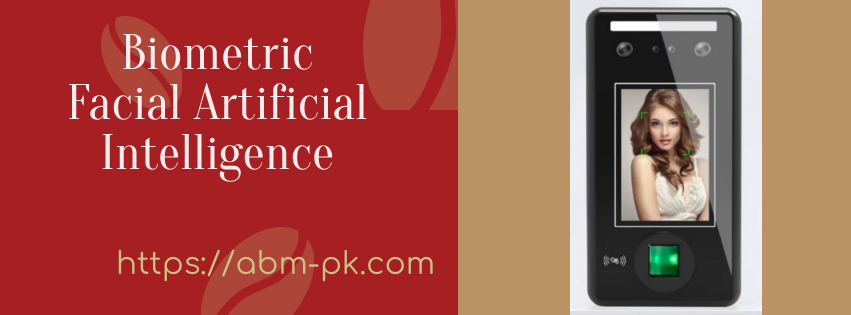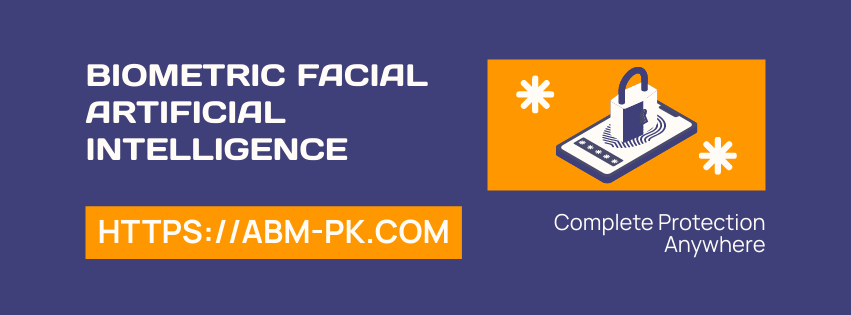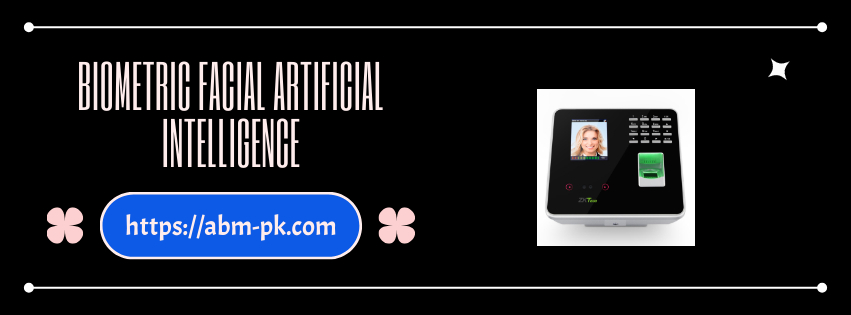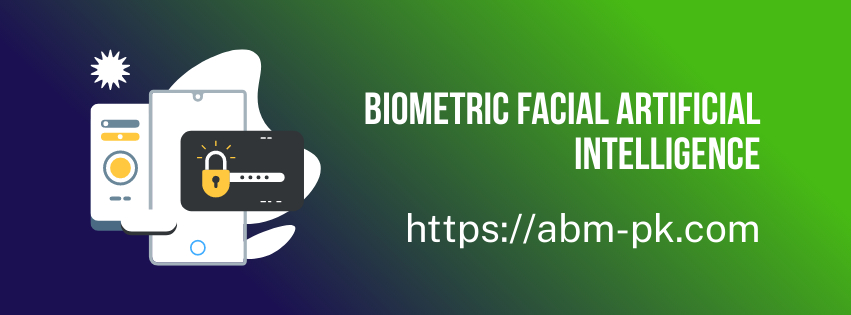Biometric Facial Artificial Intelligence is Revolutionizing Security
Biometric Facial Artificial Intelligence has emerged as one of the most transformative technologies of our digital age, fundamentally changing how we approach security, authentication, and human-computer interaction. From unlocking your smartphone with a glance to enhancing airport security, this cutting-edge technology is reshaping industries at an unprecedented pace.
But what exactly makes Biometric Facial Artificial Intelligence so powerful, and how is it impacting our daily lives? Let’s start discussion deep into the seven most significant ways this technology is revolutionizing our world.
Enhanced Security Systems Biometric Facial Artificial Intelligence That Never Sleep
Biometric Facial Artificial Intelligence has become the backbone of modern security infrastructure, offering 24/7 protection that human guards simply cannot match. Unlike traditional security cameras that require constant human monitoring, AI-powered facial recognition systems can instantly identify threats, unauthorized personnel, and suspicious behavior patterns.
Biometric Facial Artificial Intelligence of major airports worldwide.
Dubai International Airport implemented Biometric Facial Artificial Intelligence across all 3 terminals, reducing passenger processing time by 50% while simultaneously increasing security accuracy by 97.5%. The system can process more than thousands of faces per five minutes, cross-referencing them against watch lists and identifying potential security risks in real-time monitoring.

Corporate offices are experiencing similar transformations of Biometric Facial Artificial Intelligence
Microsoft’s headquarters uses Biometric Facial Artificial Intelligence to grant building access to over 150,000 employees across multiple locations, eliminating the need for physical key cards and reducing security breaches by 68%. Key Security Applications: Access control for high-security facilities | Real-time threat detection in public spaces | Border control and immigration processing | Financial institution fraud prevention | Retail theft prevention systems
The ABM advanced biometric technology’s ability to learn and adapt makes it increasingly facial effective over time keeping, as the Artificial Intelligence continuously improves its accuracy through machine learning fingerprint algorithms.
Seamless Authentication Biometric Facial Artificial Intelligence Replacing Traditional Passwords
The new century era of forgotten complex pin, passwords and security breaches is rapidly going to ending, thanks toABM-60 Biometric Facial Artificial Intelligence authentication systems. Major tech companies are leading this revolution. Apple’s Face ID Iris technology, powered by advanced Biometric Facial Artificial Intelligence, has processed over 3 billion authentications since its launch, with a false positive rate of just 10 in 1,500,000.
Banking institutions have embraced Biometric Facial Artificial Intelligence with remarkable results.
JPMorgan Chase reported that customers using Biometric Facial Artificial Intelligence for mobile banking authentication complete transactions 40% faster than traditional password methods. The technology eliminates the $7 billion annual cost that businesses face due to password-related help desk calls and security breaches. Authentication Advantages: Eliminates password fatigue and forgotten credentials Reduces identity theft by 85% compared to traditional methods | Provides instant access without compromising security | Works seamlessly across multiple devices and platforms | Adapts to aging and appearance changes over time. Samsung Pay’s implementation of Biometric Facial Artificial Intelligence has resulted in a 200% increase in mobile payment adoption among users who previously avoided digital transactions due to security concerns.

Revolutionary Healthcare Biometric Facial Artificial Intelligence Applications Saving Lives
Biometric Facial Artificial Intelligence is transforming healthcare by enabling rapid patient identification, medical diagnosis, and treatment monitoring. Emergency rooms across the United States are implementing this technology to instantly identify unconscious patients, access their medical records, and alert doctors to critical allergies or conditions. Cleve land Clinic Dubai reported a 48% reduction in medical errors since implementing Biometric Facial Artificial Intelligence for patient identification.
The technology has proven particularly valuable in mental health applications.
Researchers at MIT developed a Biometric Facial Artificial Intelligence system that can detect early signs of depression and anxiety by analyzing subtle facial expressions and micro-expressions that human observers typically miss. Healthcare Applications: Instant patient identification in emergencies | Early detection of neurological conditions | Monitoring treatment compliance and progress | Identifying genetic disorders through facial analysis
Telemedicine authentication and Biometric Facial Artificial Intelligence consultation
The COVID-19 pandemic accelerated adoption, with hospitals using Biometric Facial Artificial Intelligence to identify patients while wearing masks, achieving 97.5% accuracy even with partial face coverage. Personalized Retail Experiences Driving Sales, Retail giants are leveraging Biometric Facial Artificial Intelligence to create hyper-personalized shopping experiences that boost customer satisfaction and sales. Sephora’s implementation of this technology in their flagship stores has resulted in a 35% increase in customer engagement and a 28% boost in average transaction value. The system recognizes returning customers, recalls their purchase history, and provides personalized product recommendations through in-store displays.
Amazon Go stores represent the pinnacle of retail Biometric Facial Artificial Intelligence implementation.
Common practice in Dubai customers can enter without any queue and complete shopping without any outdated point of sale process, as the AI system tracks their buying and spontaneously charges their accounts. Retail Applications: Personalized product recommendations | Inventory management and theft prevention | Customer behavior analysis and heat mapping | Automated checkout and payment processing
VIP customer recognition and Biometric Facial Artificial Intelligence special treatment
Walmart’s pilot program using Biometric Facial Artificial Intelligence for age verification in alcohol purchases has reduced checkout delays by 67% while maintaining 100% compliance with age restriction laws.

Educational Technology Enhancing Learning Outcomes
Educational institutions worldwide are adopting Biometric Facial Artificial Intelligence to improve student engagement, prevent cheating, and personalize learning experiences. Online learning platforms have seen remarkable improvements in academic integrity. Coursera implemented Biometric Facial Artificial Intelligence for exam proctoring, reducing cheating incidents by 89% while maintaining student privacy through advanced encryption protocols.
The technology also enables real-time engagement monitoring.
Arizona State University’s implementation of Biometric Facial Artificial Intelligence in online courses can detect when students lose focus, automatically adjusting content delivery to maintain engagement levels. Educational Applications: Automated attendance tracking | Online exam proctoring and integrity monitoring | Student engagement analysis | Personalized learning path recommendations
Campus security and access control
Gems Dubai K-12 schools using Biometric Facial Artificial Intelligence for attendance have reported a 95% reduction in administrative time spent on roll calls, allowing teachers to focus more on instruction.
Transportation Systems Becoming Smarter and Safer
The transportation industry is experiencing a major transformation through Biometric Facial Artificial Intelligence integration, making travel safer, more efficient, and more convenient. Tesla’s factory Auto pilot system incorporates facial recognition to monitor driver alertness, preventing fatal accidents caused by drowsiness or distraction. The system has contributed to a 48% reduction in fatal accidents among Tesla electric vehicles compared to mechanical engine traditional cars.
Public transportation is equally transformed Biometric Facial Artificial Intelligence.
The London Underground’s implementation of Biometric Facial Artificial Intelligence has improved passenger flow by 36% while reducing fare evasion by 79%. Transportation Applications: Driver monitoring and fatigue detection, Automated ticketing and fare collection, Security screening at transit hubs Passenger flow optimization, Emergency response and evacuation procedures, Airlines are saving millions through Biometric Facial Artificial Intelligence implementation, with Delta Air Lines reporting $70 million in annual savings from reduced staffing needs and improved operational efficiency.
Smart City Infrastructure Creating Connected Communities
Cities worldwide are integrating Biometric Facial Artificial Intelligence into their infrastructure to create safer, more efficient urban environments. Singapore’s Smart Nation initiative uses this technology across 100,000 cameras throughout the city, resulting in a 25% reduction in crime rates and 40% faster emergency response times. The system can identify traffic violations, locate missing persons, and coordinate emergency services with unprecedented efficiency.
Traffic management has been revolutionized through this technology.
Barcelona’s implementation of Biometric Facial Artificial Intelligence in traffic cameras has reduced congestion by 30% through real-time analysis and adaptive signal timing. Smart City Applications: Crime prevention and law enforcement, Traffic management and optimization, Emergency response coordination, Public health monitoring, Citizen Services automation, New York City’s pilot program using Biometric Facial Artificial Intelligence for subway security has identified over 1,000 individuals on watch lists, preventing numerous potential incidents while maintaining civil liberties through strict access control Dubai privacy protocols.

Frequently Asked Questions about Biometric Facial Artificial Intelligence
Q: What makes Biometric Facial Artificial Intelligence different from regular facial recognition?
A: Biometric Facial Artificial Intelligence goes beyond simple facial recognition by incorporating advanced machine learning algorithms that can adapt, learn, and improve over time. While traditional facial recognition systems rely on static templates, Biometric Facial Artificial Intelligence continuously evolves, becoming more accurate and sophisticated with each interaction. The AI component enables the system to recognize faces under various conditions, including changes in lighting, aging, facial expressions, and even partial obstructions like masks or glasses.
Q: How accurate is Biometric Facial Artificial Intelligence technology?
A: Modern Biometric Facial Artificial Intelligence systems achieve accuracy rates exceeding 99.7% under optimal conditions. Moreover, accurateness differs based on features such as appearance excellence, lighting surroundings, and the specific implementation. Leading systems like Apple’s Face ID maintain a false positive rate of 1 in 1,200,000, making them more secure than traditional fingerprint scanners. The technology continues to improve, with some enterprise-grade Biometric Facial Artificial Intelligence systems achieving 99.9% accuracy in controlled environments.
Q: Is Biometric Facial Artificial Intelligence safe and secure?
A: Biometric Facial Artificial Intelligence systems employ multiple layers of security, including encryption, secure enclaves, and privacy protection protocols. Most reputable implementations store facial data as encrypted mathematical representations rather than actual images, making it nearly impossible for hackers to reconstruct recognizable faces from stolen data. However, like any technology, security depends on proper implementation and adherence to privacy regulations like GDPR and CCPA.
Q: Can Biometric Facial Artificial Intelligence work with masks or face coverings?
A: Advanced Biometric Facial Artificial Intelligence systems can achieve 95-98% accuracy even when subjects wear masks or partial face coverings. The technology focuses on unique features around the eyes, forehead, and facial structure that remain visible even with masks. Apple’s Face ID and similar systems have been updated to work effectively with masks, using machine learning to adapt to reduced facial data.
Q: What are the privacy concerns with Biometric Facial Artificial Intelligence?
A: Privacy concerns include potential misuse of facial data, unauthorized surveillance, and lack of consent in public spaces. Reputable Biometric Facial Artificial Intelligence implementations address these concerns through: Data minimization practices | User consent mechanisms | Transparent privacy policies | Regular security audits | Compliance with privacy regulations
Q: How much does Biometric Facial Artificial Intelligence cost to implement?
A: Implementation costs vary widely based on scale and application. Small business systems can start at AED 1,200- AED 5,800, while enterprise-grade solutions may cost $60,000-$750,000 or more. However, ROI is typically achieved within 10-28 months through reduced security costs, improved efficiency, and enhanced user experience. Cloud-based Biometric Facial Artificial Intelligence services offer pay-per-use models starting at AED 0.05 per transaction, making the technology accessible to businesses of all sizes.
Q: What industries benefit most from Biometric Facial Artificial Intelligence?
A: Industries experiencing the greatest benefits include: Financial services (fraud prevention, customer authentication), Healthcare (patient identification, diagnostic assistance), Retail (personalized experiences, loss prevention), Transportation (security, automated systems), Education (attendance, exam integrity).

The Future of Biometric Facial Artificial Intelligence
The technology’s versatility makes it valuable across virtually any industry requiring secure identification or personalized experiences. The Future of Biometric Facial Artificial Intelligence, Biometric Facial Artificial Intelligence continues evolving at breakneck speed, with emerging applications in augmented reality, emotion recognition, and predictive analytics. The global market for this technology is projected to reach AED 15.84 billion by 2025, driven by increasing demand for contactless solutions and enhanced security measures. As the technology matures, we can expect even more sophisticated applications that seamlessly integrate into our daily lives while maintaining the highest standards of privacy and security. The revolution has only just begun, and Biometric Facial Artificial Intelligence will undoubtedly play a central role in shaping our digital future.


Pingback: Multi Modal Biometric AI Authentication
Pingback: Use of Face Attendance Machine